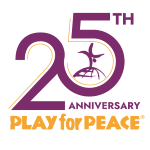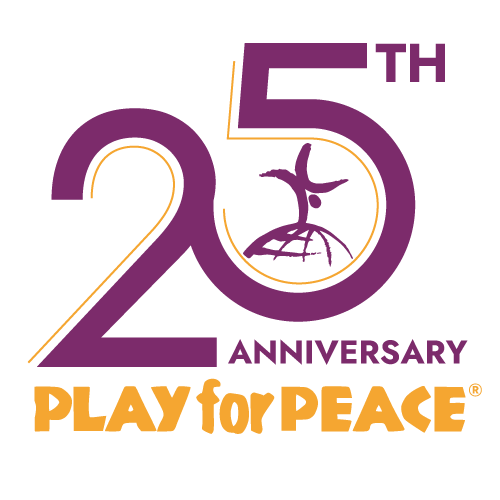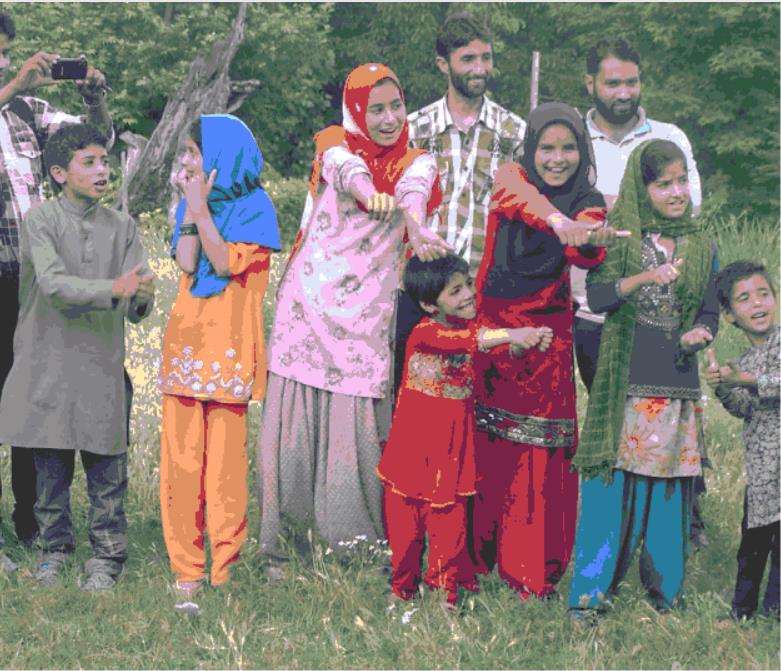At Play for Peace, we are excited to have the opportunity once again to bring our methods to Kashmir, a state that has been devastated by conflict. In the coming months, some of our trainers are planning to return to the state to conduct training and revive Play for Peace in the area. As we prepare to return to Kashmir in the coming months, we wanted to share a blog post from 2013, when trainers visited the place and found a great need for continued Play for Peace training.
------
Play for Peace in Kashmir
This story is told by Certified Trainer Sarah Tower, from Tacoma, WA (formerly a volunteer in India) We were picked up by a child rights activist named Sajid Rasool. Sajid works for a pilot program of the National Commission for the Protection of Child Rights (PPPCR) that helps to enroll out-of-school children in school, supports them with free uniforms and stationary, and links them with scholarships and camps for the snowy winter holiday in Kashmir. Sajid introduces parents and children to their rights to free education, midday meals, and healthy schools. Because of the decades of turmoil in Kashmir, children often suffer from depression, anger, and emotional withdrawal. Sajid has made hundreds of visits to parents and community leaders in the six months he has worked with PPPCR. The program has successfully returned more than 700 out-of-school children to formal education, in a region plagued with child labor in the agricultural and carpet-weaving sectors. Although the activists went through only one Play for Peace training session, 23 clubs in two districts are now using Play for Peace methods to teach cooperation, friendship, and fun. The activists in PPPCR appreciate Play for Peace because it helps the children interact and improves their mental health. “These games help the children relax,” Sajid told us.
Reaching Srinagar, we saw two large circles of about thirty children each—one group of boys, one of girls. The children took turns leading games. Family members stood around the field, watching the play. Eventually the two groups of children merged and the girls and boys played the same games again—together this time. In another village, the boys played Play for Peace games in a large circle—but around a dozen girls stood shyly, afraid to join or ask questions. When Sarah joined the circle formed by the boys and men the girls followed quickly, eager to play.
We met with some of the activists in the village. They told us that these games help the children to overcome shyness and to develop leadership and responsibility. The children learn to demand their rights to things like drinking water in schools, education, and play. Play for Peace provides a rare opportunity for cooperative play between boys and girls, between the poor and the middle class. Over time, the children become confident enough to tell the activists about problems with their schools—like absent teachers, or lack of a midday meal.
The activists agreed that they needed more Play for Peace training. Their only session happened a year and a half ago; many new activists have gotten involved since. They need both more exposure to Play for Peace methods elsewhere and more training sessions in Kashmir. They need videos and print material of games and songs to learn from and use to enrich their sessions. They gave us a copy of their latest report, and we left with a feeling of hope.
Back in Srinagar, we met with a former head of PPPCR, Tanveer Ahmad Dar. He told us about two clubs, one in Kupwara and one in Bandipora, that use Play for Peace. We discussed ways Play for Peace could partner with PPPCR, like using module training to prepare trainers internally and assisting in teachers' education. We shared what Play for Peace trainers do with Zero Violence programs in schools in Hyderabad. We also told him about our Child Rights module, where children make puppet shows about their rights. Tanveer is interested in scheduling further training.
We are thrilled about the difference Play for Peace has made for the children of Kashmir, and hope to continue and deepen our contribution to the work of PPPCR.![pfp3[1]](/web/default/files/BlogImages/ContentImages/pfp31-300x199f53499a4a6c40db7e1aaf8e5cb198861.jpg)



![pfp2[1]](/web/default/files/BlogImages/ContentImages/pfp21-300x289fd0e7041848757de6bb0baa21c6d700d.jpg)
